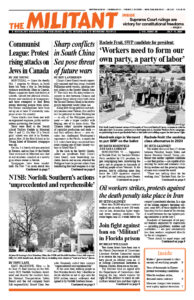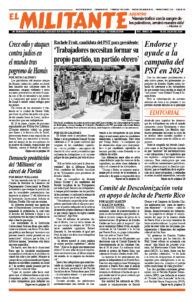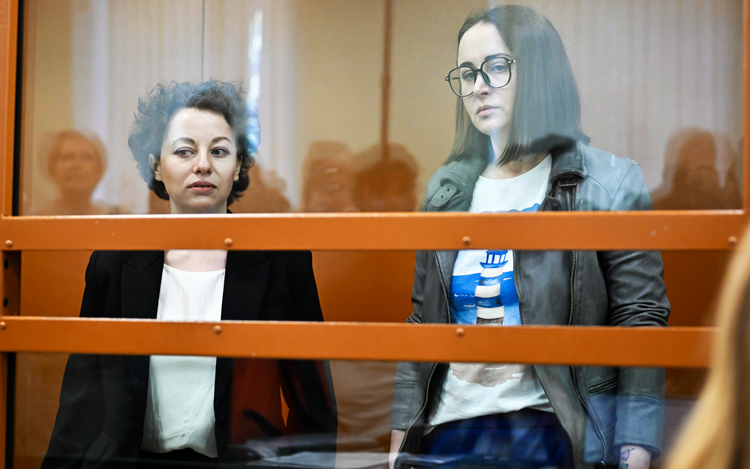Yevgenia Berkovich, left, a prominent theater director, and playwright Svetlana Petriychuk were put on trial in Moscow in May on charges of terrorism over a prize-winning play they staged. Arrested over a year ago and held in jail until the trial, the women face allegations their play justifies exactly the kind of brutal terrorist acts they set out to condemn and educate against. If convicted, they can be imprisoned for seven years.
“Finist the Brave Falcon,” is a modern-day Russian fairy tale tragedy about a young Russian woman who goes to Syria to join a radical extremist offering to marry her. Horrified by the actions of Islamic State and feeling betrayed, she returns home only to find herself charged and convicted as a terrorist herself.
The play is based on court records showing how women from Russia, Kazakhstan and Uzbekistan had been lured to become wives or sex slaves for Islamic State combatants. The goal of the author and producer was to expose this and prevent more women from having such disastrous experiences. Launched at a Moscow literary festival in 2019, their play won widespread acclaim. It received an award and funding from the Russian culture ministry in 2022 as President Vladimir Putin’s war on Ukraine unfolded.
For their play, Berkovich and Petriychuk face the threat of punishment not seen in decades. This sparked outrage in Russia, with over 16,000 people signing an open letter in their defense. The play, the letter said, “carries an absolutely clear anti-terrorist sentiment.”
Since Putin launched his invasion of Ukraine, he has deepened the assault on free expression in art and culture in Russia. This is unparalleled since the days of Stalin’s gulag in the Soviet Union. Prominent artists, writers and musicians have been purged from their jobs, with some, like Berkovich and Petriychuk, facing prosecution and prison.
The Kremlin has an unstated reason for its chilling persecution of the two women and their play: Berkovich has made statements opposing Putin’s invasion of Ukraine and published anti-war poetry.


